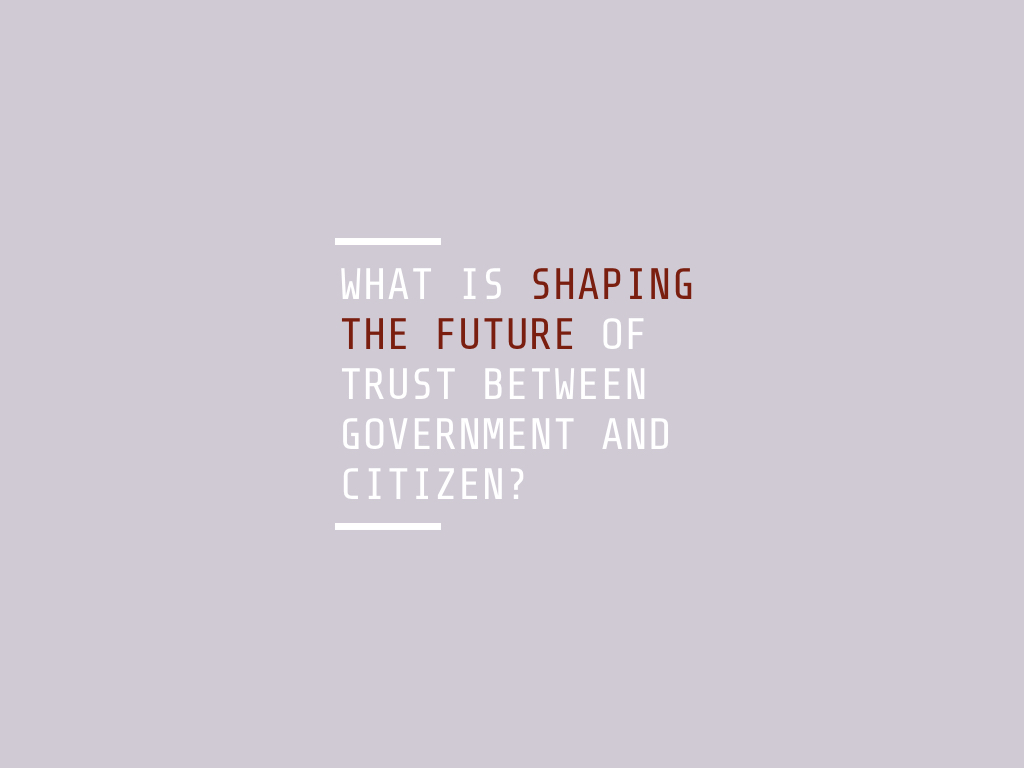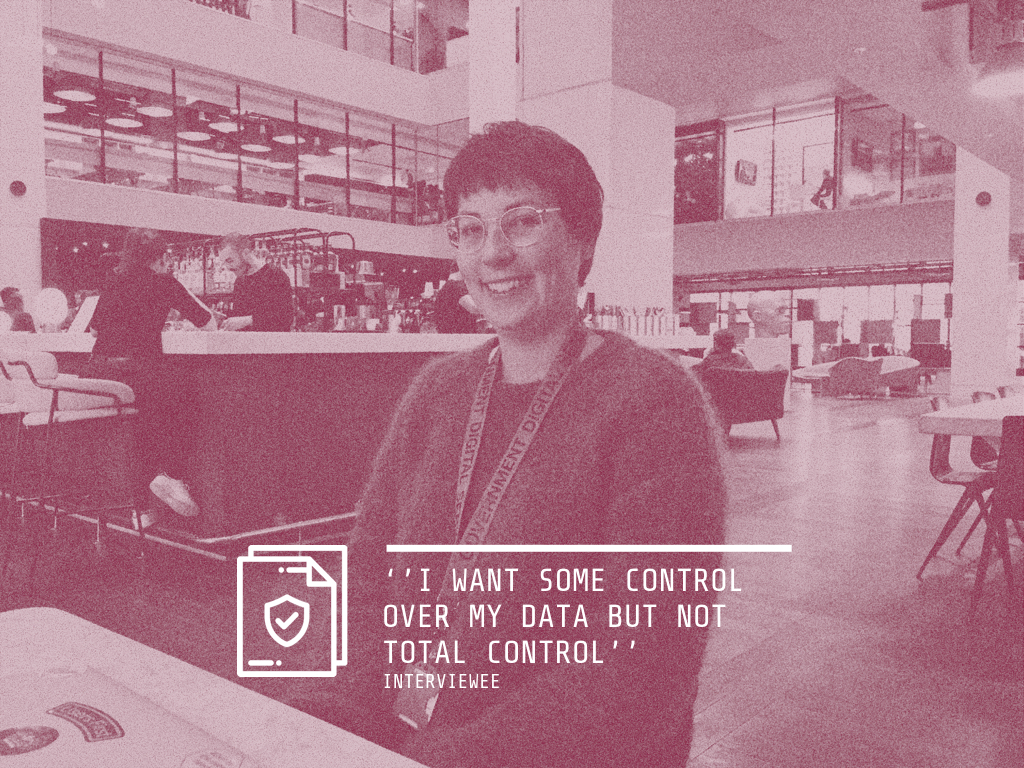Identikey
Identikey creates a path to trust through education, transparency, empowering people to enact their data rights and giving them a means by which they can voluntarily donate their information to services and causes they believe in. Underpinning Identikey is the British Data Corporation, a new public corporation that provides data services for citizens.
Insights:



In the final term of our 1st year on the RCA Service Design MA we had the opportunity to work in collaboration with the Centre for Public impact. Working in a small group of three we took on the brief: ‘What kind of future service visions can we create to help policymakers imagine what a transformed government could look like in the future?’ With a world of topics in front of us, and after some mass brain storming, we decided to focus on the future of legal identity. This proved to be the start of an exciting journey, with our research uncovering that in the modern day our identity, both personal and legal, is inextricable from data and the digital world. Identifying that what was important for the future of Government was trust we set about discovering how we could create a service that would simultaneously develop a trust relationship between citizens and government and create a future data service that would give citizens more control.
We wanted to learn what potential future users felt would be important, so we conducted a focus group and a series of 1-1 interviews. From this our 3 key insights were:
1. A balance of power is important for trust
2. People want some control over data but not total control
3. A lack of understanding about rights can make people frustrated
The strategy
These insights informed our main design principles and led us to look further into what the existing system does well, and what it lacks, in terms of these 3 elements. When analyzing the current eco-system surrounding data and identity we found that the new General Data Protection Regulation provides rights and information on usage and protection. The government’s Verify service provides the standards for proving your identity online and the current data storage system offers security as it is distributed across different services. What we found was missing was the tools and means for citizens to be more proactive in understanding and managing their data and rebalancing the power between them and service providers.
Our solution is Identikey, an app-based digital platform that provides a new way for citizens to manage their digital identity. Identikey creates a path to trust through education, transparency, empowering people to enact their data rights and giving them a means by which they can voluntarily donate their information to services and causes they believe in. Underpinning Identikey is the British Data Corporation, a new public corporation that provides data services for citizens. The advantage of this model is that it’s initiated by the Government, so is overseen by elected officials, however as its 50% private it can benefit from private sector technological expertise.
Hybrid model
Using features such as a pre-download trial and video, so users can gain an understanding of the service, a transparent and adaptable contract, so they can set their preferences and an AI assistant to explain their rights, Identikey marks a transition into a future where data is no longer an unknown entity mainly controlled by private companies. We hope that it would offer a solution where citizens can take a more active and informed role, knowing what data they produce and what happens to it once it’s generated. By being able to donate information to selected causes we aim to change the way services are improved by providing a channel in which people can contribute, with data, to their development. This would mark a shift from the current scenario of companies illicitly and opaquely collecting data to a focus on building relationships with users, and therefore creating more widespread trust.
If Identikey were to be implemented the implications are likely to be varied. On the one hand if a service such as this succeeded in its aims then it could give citizens an active and meaningful say, not only in their own data identity but in larger civic frameworks. These include the law, the economy and democracy, as they’re all underpinned by technology and will rely on data as a resource more and more as technology advances in the future. When speaking to Meg Douglas from the Government Digital Service she felt that a new data service like Identikey may be able to set the standards for data management that others could emulate and build upon, providing a solid and regulated basis for innovation.
Client:











